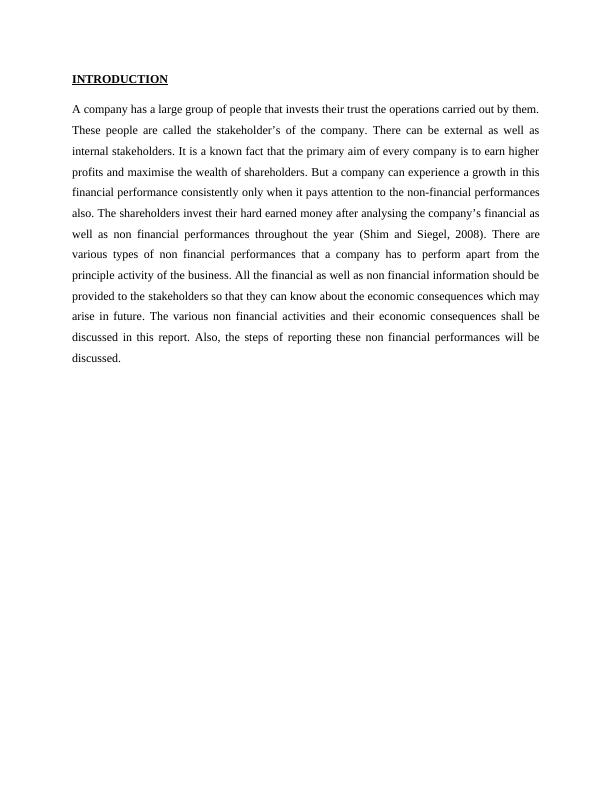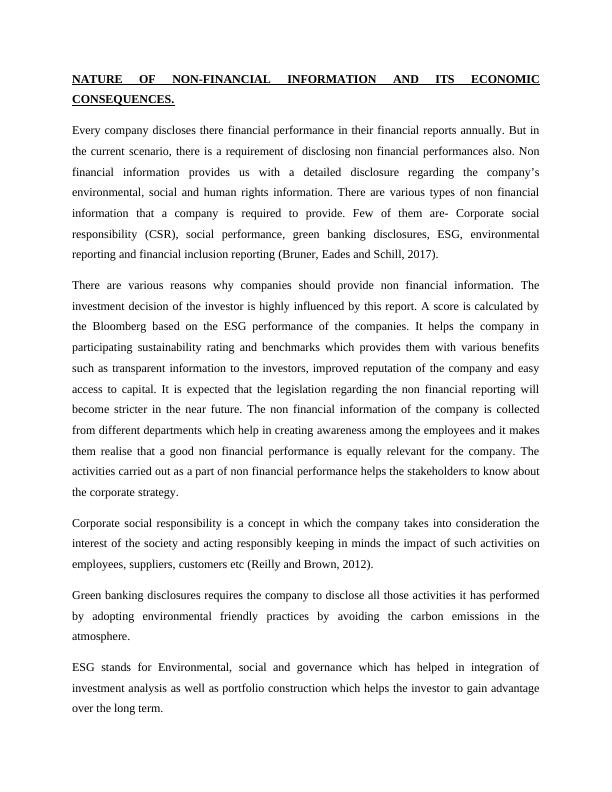Non-Financial Performance Reporting and Its Economic Consequences
Write a report on a topic included in the Financial Accounting 3 course.
8 Pages1706 Words348 Views
Added on 2022-10-19
About This Document
This report discusses the nature of non-financial information and its economic consequences, the consequences of non-financial reporting, and non-financial performance reporting and disclosures. It also provides information on the various categories that should be disclosed in these non-financial reports.
Non-Financial Performance Reporting and Its Economic Consequences
Write a report on a topic included in the Financial Accounting 3 course.
Added on 2022-10-19
ShareRelated Documents
End of preview
Want to access all the pages? Upload your documents or become a member.
Nature and Economic Impact of Non-Financial Information Reporting
|11
|2792
|285
Economic Consequences of Non Financial Information Reporting
|10
|2168
|173
Economic Consequences of Non-Financial Information Reporting
|9
|2795
|52
Social Environmental and Governance Analysis of Commonwealth Bank of Australia
|12
|2378
|127
Advanced Financial Accounting
|7
|1440
|64
Accounting: Research Proposal
|11
|3611
|65



